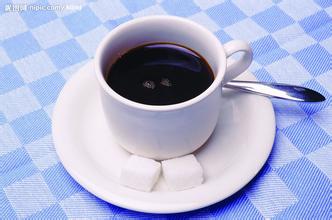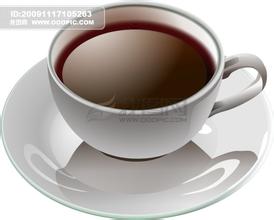Introduction to the flavor and taste of the fragrant and pure Salvadoran coffee manor
El Salvador, located in the northwest of Central America and bordered by the Pacific Ocean to the south, is one of the birthplaces of the ancient Mayan civilization. The nearby volcanoes, plateaus, lakes and bathing beaches along the Pacific coast are all very pleasant. But El Salvador is most famous for its unique, mild-flavored coffee.
El Salvador is one of the small countries in Central America with a very dense population. People here love coffee. The coffee in El Salvador tastes well balanced. Salvadoran coffee exports account for 40% of the country's exports. The best quality coffee is exported from January to March each year, and 35% of the extra hard beans are exported to Germany. In the early 1990s, due to the impact of war, the national economy of El Salvador was greatly damaged, even destroyed. As a result, the output of coffee decreased from 3.5 million bags in the early 1970s to 2.5 million bags in 1990-1991.
In El Salvador, the coffee beans rich in the Kuskabapa region are the best, slightly lighter, fragrant, pure and slightly sour. Like Guatemala and Costa Rica, coffee in El Salvador is graded according to altitude, and the higher the altitude, the better the coffee. The best brand is Pip, whose quality has been recognized by the American Organic Certification Society. Another rare coffee is Parkmara, a hybrid of Pacas coffee and Marago Rippi coffee, best produced in western El Salvador, adjacent to Santa Ana, which is close to the border with Guatemala. Parkmara coffee is full-grained, but the aroma is not strong and unique, with a mild taste. El Salvador is one of the small countries in Central America with a dense population. The flavor of its coffee is characterized by excellent balance. Today, this coffee accounts for 40% of the country's exports. 35% of the extra hard beans of the best coffee are exported to Germany from January to March.
In the early 1990s, guerrilla warfare greatly damaged the country's national economy, reducing coffee production from 3.5 million bags in the early 1970s to 2.5 million bags in 1990-1991. The eastern part of the country was the hardest hit by guerrilla warfare, with many farmers and workers forced to leave the manor. The shortage of funds has led to a sharp drop in coffee production, from 1200 kg per hectare in the past to less than 900kg per hectare today.
In addition, the government imposed an additional 15% tariff on exported coffee in 1986, that is, an additional 15% in addition to the existing 30% tax. Taxes, together with unfavorable exchange rates, have greatly reduced the export of coffee and the quality of coffee. The government finally realized the great role of coffee in the national economy, such as solving employment, earning foreign exchange and developing agriculture, so it privatized some coffee export industries in 1990, hoping to increase the income rate of coffee in the export market.
In Cuscacbapa, El Salvador, packaged coffee beans are about to be exported to El Salvador. Coffee from El Salvador is a specialty of Central America, where it is light, aromatic, pure and slightly sour. Like Guatemala and Costa Rica, coffee in El Salvador is graded according to altitude, and the higher the altitude, the better the coffee. The best brand is Pipil, which is what the Azbec-Mayan (AztecMayan) called coffee, which has been approved by the American Organic Certification Society (Organic Certified Institute of America).
Another rare coffee is Pacamara, a hybrid of Pacas and Maragogype. The best place to produce the coffee is in western El Salvador, adjacent to Santa Ana, which is close to the border with Guatemala. Parkmara coffee is full-grained, when the flavor is not too strong

Important Notice :
前街咖啡 FrontStreet Coffee has moved to new addredd:
FrontStreet Coffee Address: 315,Donghua East Road,GuangZhou
Tel:020 38364473
- Prev

Rough, fruity, Cuban Crystal Mountain Coffee Flavor, Manor characteristics, Fine Coffee introduction
The Cuban flag is horizontally rectangular with a ratio of length to width of 2 ∶ 1. On one side of the flagpole is a red equilateral triangle with a white five-pointed star; the right side of the flag is composed of three blue wide stripes and two white wide stripes parallel and connected. Triangles and stars were originally symbols of Cuba's secret revolutionary organizations, symbolizing freedom, equality, fraternity and the blood of patriots. The pentagram also represents that Cuba is a
- Next

Introduction to the characteristic varieties of Nicaraguan Coffee Flavor Manor with unique planting Ecology
Since July 1927, Augusto. Cesar. Sandino led the people in a guerrilla war against the US occupation, forcing the US military to withdraw in 1933. On February 21, 1934, the Commander of the Nicaraguan National Guard, Anastacio. Somocha. Garcia assassinated Sandino at the behest of US President Roosevelt. He became president in 1936 and has been pro-American for more than 40 years since then.
Related
- Detailed explanation of Jadeite planting Land in Panamanian Jadeite Manor introduction to the grading system of Jadeite competitive bidding, Red bid, Green bid and Rose Summer
- Story of Coffee planting in Brenka region of Costa Rica Stonehenge Manor anaerobic heavy honey treatment of flavor mouth
- What's on the barrel of Blue Mountain Coffee beans?
- Can American coffee also pull flowers? How to use hot American style to pull out a good-looking pattern?
- Can you make a cold extract with coffee beans? What is the right proportion for cold-extracted coffee formula?
- Indonesian PWN Gold Mandrine Coffee Origin Features Flavor How to Chong? Mandolin coffee is American.
- A brief introduction to the flavor characteristics of Brazilian yellow bourbon coffee beans
- What is the effect of different water quality on the flavor of cold-extracted coffee? What kind of water is best for brewing coffee?
- Why do you think of Rose Summer whenever you mention Panamanian coffee?
- Introduction to the characteristics of authentic blue mountain coffee bean producing areas? What is the CIB Coffee Authority in Jamaica?

